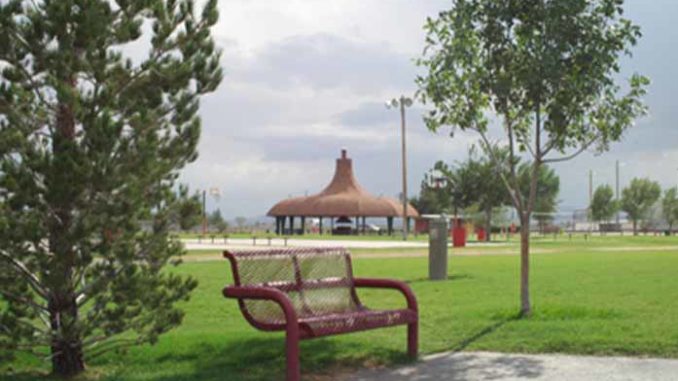
When Sarra L. left her 7-year-old son at a Tucson neighborhood park for about 30 minutes in November 2020 while she ran to a local store to get groceries for Thanksgiving, she believed he and his 5-year-old friend would be safer there than inside the store where COVID-19 protocols were still in place.
Instead, that decision has caused Sarra to be added to the Arizona Department of Child Safety’s Central Registry for 25 years despite the fact she was never convicted of any crime. It is an action she is fighting in court with the help of the Goldwater Institute and the Pacific Legal Foundation.
Under Arizona Revised Statutes 8-804, DCS maintains a Central Registry of “substantiated” reports of the abuse or neglect of children or vulnerable adults. Being listed means the person cannot obtain several types of licenses or certifications from the State of Arizona which are needed to obtain employment or volunteer clearance.
The Central Registry is reviewed during background checks for prospective foster parents, adoptive parents, child welfare and childcare workers, as well as employees of on-home care companies, group homes, residential treatment centers, homeless shelters, and other care facilities for children and vulnerable adults.
Even prospective school and church volunteers may have their names reviewed if they will have contact with children.
For Sarra, who has worked with refugee children, being on the Central Registry will ruin her professional reputation and could also deprive her of volunteer opportunities at her son’s school.
It is something Sarra, now 55, could not have anticipated back in 2020 when she left the boys in the park while she went to purchase a turkey for Thanksgiving. Court records show a few of her friends were also at the park and would be available for the boys if they had any problems.
But Tucson police officers patrolling in the area did not know of that arrangement when they approached the boys and started questioning them about why they were alone. One of Sarra’s friends at the park called her about the officers talking to the boys, which brought Sarra rushing back to speak with the police.
She was cited by the officers with two counts of contributing to the delinquency of a minor, charges which were quickly dropped by a Pima County prosecutor after Sarra completed a parental life-skills class. It was not, however, the end of her trouble.
DCS conducted its own investigation and concluded there was “probable cause” that Sarra neglected her son. An Administrative Law Judge agreed with DCS, which allowed Sarra’s name be entered in the Central Registry.
The Goldwater Institute and Pacific Legal Foundation have joined forces to defend Sarra by challenging the operation of what they call Arizona’s “arbitrary and unconstitutional” Central Registry process. The lawsuit they recently filed on her behalf argues it did not matter to DCS employees and DCS Director Mike Faust that Sarra’s son and his friend were never harmed.
It also did not matter to DCS that there was no evidence presented that the boys were never even put at risk.
“DCS has a track record of ignoring due process that should protect innocent parties from severe punishment,” said Adi Dynar, an attorney for Virginia-based Pacific Legal Foundation.
Another of Sarra’s attorneys is Tim Sandefur, Vice President for Legal Affairs at the Goldwater Institute. He points out that the decision on whether neglect or abuse occurred is not made by a judge considering evidence and legal arguments.
Instead, the decision is left to a non-lawyer government employee without sufficient due process or constitutional protections. “Overzealous bureaucrats shouldn’t be allowed to prosecute parents for letting their kids play in public parks,” Sandefur argues.
Sandefur adds there is another problem with the Central Registry in that DCS acts as the investigator, prosecutor, judge, and jury. It is one reason why Sandefur is asking Judge Daniel Kiley of the Maricopa County Superior Court to issue a preliminary order to DCS to remove Sarra’s name from the Registry while the litigation works through the court system.
“The court should, once again, rebuke DCS for meddling in the decisions of parents who have done nothing wrong,” the lawsuit argues.
Kiley has scheduled oral arguments on the motion to temporarily stay, or block, DCS from adding Sarra’s name to the Registry if it is not yet there or to remove her name for now. Among the factors the judge will consider is whether the “balance of harm” favors keeping Sarra’s name off the Registry until the lawsuit is resolved.
The balance of harm factor does not require Sarra to demonstrate she will suffer irreparable harm if her name is on the Registry during litigation. Instead, the Court is only required to weigh the harm to her “against the harm that would accrue to the agency or other parties to the proceedings.”
There is recent legal precedent for Sarra’s lawsuit to void the DCS decision. In June, the Arizona Court of Appeals ruled Faust violated state law by adding Phillip B., a longtime childcare worker, to the Registry without the required substantiated finding of abuse.
READ MORE ABOUT PHILLIP B. HERE

